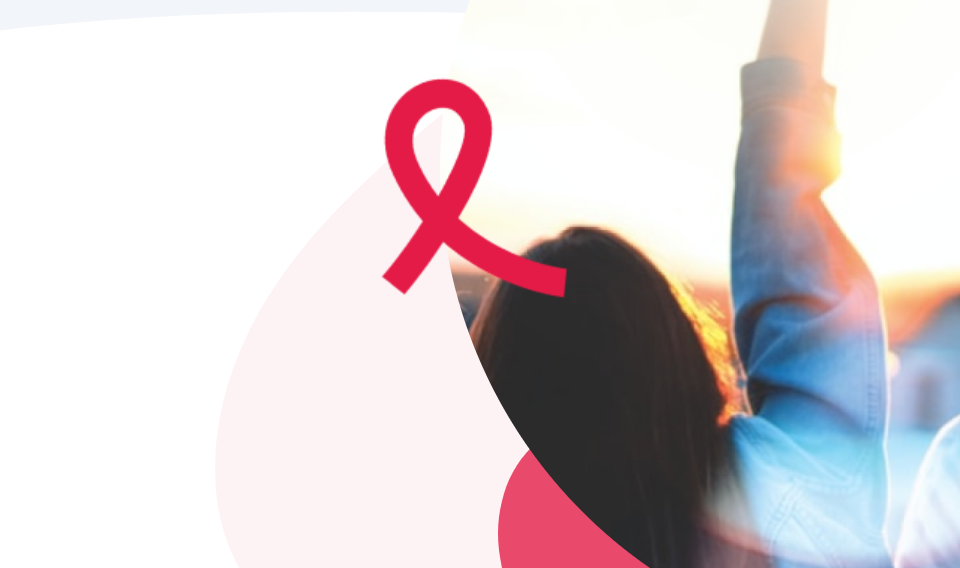
“You Are Not Alone is an NGO active in HIV prevention in the city of Voronezh and the surrounding area. Legal Dialogue interviewed project coordinator Natalya Korzhova about the Center’s “Equipage” project helping sex workers, about the hidden HIV epidemic in the area, and about barriers to helping their clients access justice.
About “You Are Not Alone” and “Equipage”
Our NGO, the “You Are Not Alone” Center for Prevention of Socially Significant Diseases, started as a group of people living with HIV who met through their doctors. We aspired to stop the spread of HIV, and our doctors supported us. Our group – those infected and affected – were able to adapt to the diagnosis, get rid of destructive habits, access treatment, and live a fulfilling life.
At some point, an increasing number of calls to our helpline from people living with HIV made us realise that we needed to reach out to sex workers. First, we received a call from the sister of a sex worker who was dying of AIDS. Then three truck drivers diagnosed with HIV contacted us. But the starting point for our new project was the story of a 55-year-old wife of a truck driver; she had never had sex outside of her marriage but contracted HIV because her husband had been unfaithful.
We started volunteer-based outreach to sex workers. At first, they were suspicious of the two strangers – a weird woman and a man – offering them condoms. But eventually, they began to trust us. The girls also asked us questions about legal matters. We handed out our cards to make it easy for them to contact us. Soon, we were contacted by pimps who wanted to meet. We realised that working with our target group would be impossible without finding a common ground with the gatekeepers. The first thing we did was to explain to pimps who we were and to begin educating them about HIV: some even got tested.
Then we applied to foundations and to our local AIDS center to raise awareness and solicit resources for our work. We spent three years conducting a bio-behavioral study, with funding from the regional budget and foundations, to collect statistics and to determine the average profile of local sex workers, including age, gender and other information we needed to build an effective prevention program and adapt to changing trends.
On problems sex workers face in accessing services
Some women do not have IDs and are afraid to contact social services due to internal stigma. Sex work is a kind of occupation that often disrupts social connections and makes every contact with the outside world a stressful event. If an ordinary person needs medical assistance, they can go to any doctor. But our client can only go to a friendly ob/gyn to whom she can say openly, “I have had 100 partners in a month” and be properly examined and treated, if necessary.
Stigma creates a lot of other problems for the women. During outreach, we discuss with them how to explain to clients why condoms are important, how to insist on condom use, and how to say no if a client refuses to use a condom.
We also support women in choosing other careers. It is not our goal to pull them out of sex work and reeducate them; we have no illusions whatsoever about this matter. We accept their choice whether or not it matches our ideal picture of the world. But if any of them wish to leave this occupation, we can put them in touch with an employment center so they may be tested, provided with career guidance, and offered a job.
Whether criminalisation of prostitution* hinders our work
It is complicated. I have been looking at other countries and at a variety of models. I have serious concerns that moving from criminalisation to legalisation could make matters worse. Girls from small towns are not even thinking about their legal status, only about survival. In our bio-behavioral survey, we asked them, “How many times have you been arrested?” It turns out that only a tiny percentage of girls have ever been arrested for prostitution.
There is also the human factor, such as personal attitudes of healthcare workers. I doubt that even a change in legislation such as legalisation or decriminalisation could influence this human factor in our country where traditional family values are promoted. From a small-town perspective, imagine a woman, a healthcare worker in her forties: she has problems in her family and concerns that her husband might go to a sex worker. Could decriminalisation make a difference for her? Changing public opinion takes time, and right now our priority is to help the girls stay healthy.
On helping clients with legal action
Recently, we have been helping a sex worker whose client publicly insulted her and disclosed her personal details. When I learned about it, I suggested, “Let us file a complaint and pursue the case, so others may think twice before acting as he did.” Her response was, “I just want him to leave me alone.” We only go as far as our clients want us to go. On the other hand, we have been helping one of our beneficiaries with litigation, but as she doesn’t want publicity, we keep it private.
The main thing for us is to help women mobilise their inner resources. It is essential that a client has developed a safety protocol and follows it daily. We want to make sure that she will keep safe, both mentally and physically.
On working with MSM and men offering sex services to other men
Male escort services are well established in our area, partly due to our location close to Moscow.
We surveyed a group of MSM (men who have sex with men) as part of our bio-behavioral research and discovered a hidden epidemic. When we offered HIV tests in a local club for the first time, eight out of fifteen came out positive!
There was opposition from the MSM community at first, and no one wanted to cooperate with us. Later, we reconsidered our approach and since then have been able to work in clubs using certain standard protocols.
On providing legal support to MSM
Legal issues can arise if a young man is an orphan or if he has had unprotected sex with a new partner. They also ask a lot of questions about pre-exposure and post-exposure prophylaxis. PEP is often discussed at Russian websites run by LGBT organizations. Of course, we also tell the girls about PEP availability, but interest is much greater among MSM.
There is an outreach worker on our team who is MSM and in charge of our prevention in that community. He has access to the private chatroom of Voronezh MSM sex workers. We keep in touch, and he turns to me for help with difficult cases.
This man learned about his own HIV through one of our projects. He chose to disclose his HIV status and faced severe harassment within the LGBT community. There have even been publications about him on external, non-LGBT resources. We offered to help him with a lawsuit, but he chose not to go for it.
Stigma and self-stigma remain very strong. But we are lucky to have activists in our area who work to strengthen the community.
* Natalia Korzhova refers to her organisation’s clients using the terms “sex worker” and “sex work,” but the relevant provision of the Russian Administrative Code uses the term “prostitution” (Article 6.11).
Similar Posts:
- “Threat to life is often underestimated in a situation of violence”. Interview with Anastasia Maskaeva, Crisis Centre for Women
- “The virus doesn’t care what group a person belongs to.” Interview with Denis Efremov, Sibalt Centre (Omsk)
- “More women with HIV seek legal assistance.” Interview with Ekaterina Artemenko, Womanplus.info
